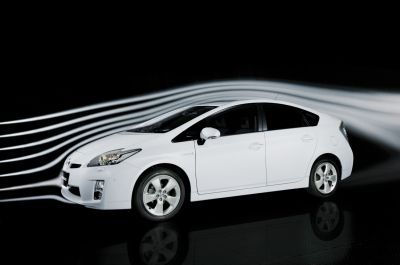Japanese car firms look overseas for growth

Your support helps us to tell the story
From reproductive rights to climate change to Big Tech, The Independent is on the ground when the story is developing. Whether it's investigating the financials of Elon Musk's pro-Trump PAC or producing our latest documentary, 'The A Word', which shines a light on the American women fighting for reproductive rights, we know how important it is to parse out the facts from the messaging.
At such a critical moment in US history, we need reporters on the ground. Your donation allows us to keep sending journalists to speak to both sides of the story.
The Independent is trusted by Americans across the entire political spectrum. And unlike many other quality news outlets, we choose not to lock Americans out of our reporting and analysis with paywalls. We believe quality journalism should be available to everyone, paid for by those who can afford it.
Your support makes all the difference.Sales of cars in Japan slumped to their lowest levels for 38 years in 2009, driven down by the global economic crisis and consumers reining in their spending.
Sales of new cars fell 9 percent from the previous year, down to 2,921,085 million vehicles, according to the Japan Automobile Dealers' Association. It was the first time domestic car sales had been below the 3 million units level since 1971.
The news for Japan's carmakers was not all bad, however, as Japanese cars are now the biggest sellers in the United States after General Motors and Chrysler were unable to improve their sales figures for 2009. Nissan, Toyota, Honda and Mitsubishi also have ambitions on the emerging Indian market and have been prominent at the ongoing New Delhi Auto Expo.
"The impact of the 'Lehman Shock' was the single most important reason for the disappointing domestic sales figures and quickly led to consumers becoming very anxious about the value of their assets," Toshiki Miyake, a spokesman for JADA, told Relaxnews.
The Japanese government's scheme to encourage the owners of older models to trade in their cars for more environment-friendly versions was a positive move, Miyake said, but was ultimately insufficient to completely offset the dramatic slump.
Sales have plummeted by more than 1 million units since 2005 alone, the association pointed out.
Carmakers hope new models to be released in the next 12 months will boost sales figures, although Miyake suggested the outlook remains "very severe" for the industry.
Most efforts are being directed into green engine technology, which helped Toyota Motor Corp.'s new Prius into top spot in the domestic sales charts for 2009. An updated version of the hybrid vehicle was released in March and domestic sales for the first seven months of the year came to more than 79,000 units, according to the manufacturer.
The car is in such demand that sales are backlogged until May as Toyota struggles to keep up with demand, with a bottleneck in battery production proving a stumbling block.
Toyota - the largest car manufacturer in the world - is also happy at the sales figures for the Prius abroad. Sales in the North American market in the eight months to August were approaching 97,000 units, while the figure for Europe in the same period came to 20,600 cars.
JR
Join our commenting forum
Join thought-provoking conversations, follow other Independent readers and see their replies
Comments